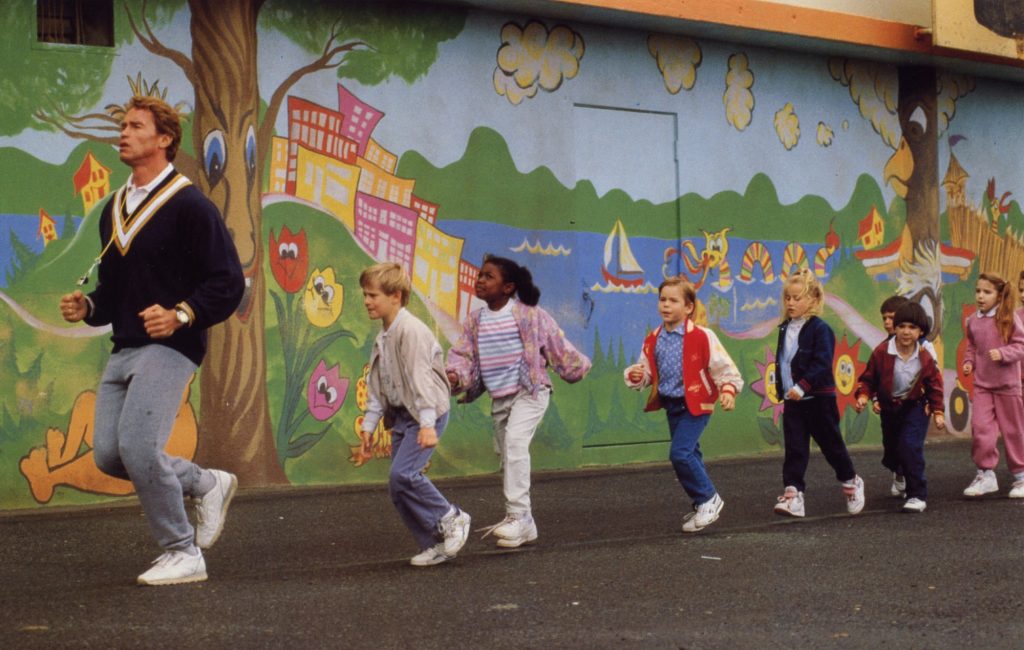Do Preschool Teachers Really Need College Degrees?
The levels of higher education involved to get a teacher into the classroom, whether it be elementary school up through high school can often be quite demanding. Does it really help make preschool teachers better though? Do preschool teachers really need a college degree to effectively teach children? The answer isn't as obvious as you might assume.

The levels of higher education involved to get a teacher into the classroom, whether it be elementary school up through high school can often be quite demanding. Does it really help make preschool teachers better though? Do preschool teachers really need a college degree to effectively teach children? The answer isn’t as obvious as you might assume.
The Case For College Educated Preschool Teachers
According to the “Build Back Better” bill debated in Congress during 2021 and 2022, those who are teaching and caring for our youngest need a huge amount of college education. One provision introduced into the bill calls for “universal, high-quality, free, inclusive, and mixed preschool services” run by the states but funded by Washington, provided that “at a minimum, [states] requir[e] that lead teachers in the preschool have a baccalaureate degree in early childhood education or a related field by not later than 7 years after the date of enactment of this Act.” What they are basically saying here is that to become a lead teacher for preschoolers you are going to need a four-year college degree.
Advocates of this provision claim this will ensure that qualified adults will be teaching and nurturing young minds during a crucial phase of their development. They lean on evidence that shows that high-quality education for the young helps children for the remainder of their lives. They also point out that a low-quality education (or would that be an educator) will do much more damage than not. But what constitutes a “high-quality” education isn’t entirely clear.
It should be noted, according to a 2018 report by The 74, that 21 states already have a requirement that preschool teachers must have college degrees. These states include New York, Texas, Illinois, and Georgia. Florida, Virginia, and Massachusetts. Meanwhile states like California do not require college degrees for preschool teachers.
Some studies have shown that a good, quality childcare program is tied to a teacher’s education. Then again, it is hard to determine if it was exactly the education or the fact that there was a combination of factors that play into it such as class size, teacher-to-student ratios, classroom atmosphere, and curriculum.
The Case Against Preschool Teachers Getting College Degrees
Critics say there is no data at all which suggests a college education is necessary in order to take care of our young children. What they do point out is something that those of us with small children already know. If college credentials are mandated, the cost of childcare is not only going to rise, but it is also going to reduce the number of teachers who can take on the job.
Max Eden, an education research fellow at the American Enterprise Institute, calls the provision a “regressive policy.” He went on to say that there is “no evidence to support this will help with student outcomes.” He also pointed out that if this provision were to go through it would “price out a number of women from the workforce who are just trying to provide for their families.” Eden then pointed to the already rising costs of preschool in the Washington, D.C. area that already requires teachers to have a college degree as a negative aspect of the proposed federal policy.
Lindsey Burke, the Heritage Foundation’s director of the center for education policy, said the policy was a “gift to the colleges of education, which would see an influx of individuals who would now need bachelor’s degrees to be preschool teachers, even though the job requirement hasn’t changed.” She then expounded. “Requiring BAs for preschool teachers would dramatically increase the cost of preschool, create barriers to entry into the profession, and would not improve the quality of early education and care,” Burke said via Yahoo! News. “There is no evidence that formal education beyond a high school diploma makes someone a better caretaker. And similar bachelor’s degree requirements in Washington, D.C., are part of the reason why it is now the most expensive area for infant care in the country.”
This is a debate that has gone on for a number of years. Researchers have concluded that children develop quickly before kindergarten and the gap between achievements widens based on factors like family income. A steeper price for childcare is only going to fuel more inequality.
So, what do we make of this proposed policy in President Biden’s “Build Back Better” legislation? Is it truly necessary to require preschool teachers to earn a four-year college degree to love and nurture their children? This requirement, if the bill is finally passed, doesn’t seem to address the true issue families are having. Affordable daycare. It also won’t address the issue they will soon face, which is worse than the one already at hand – the lack of childcare workers.
Wisconsin, which is one of the states that require their childcare workers to have a college degree, has already shown that even pre-COVID they were struggling to find preschool teachers. One of their many issues was that teachers who had even an associate’s degree were bringing home a measly $10 an hour. “If you know that 52 percent of the childcare workforce in Wisconsin has at least an associate degree and that the average wage is $10 an hour, it’s not surprising that we’d have a teacher shortage,” Ruth Schmidt, executive director of the Wisconsin Early Childhood Association, said via Wisconsin Public Radio.
Effort Versus Education
It’s worth noting that homeschool kids routinely outperform kids taught by college educated professional teachers. The gap is actually huge and it doesn’t matter if the parents doing the homeschool are educated or not. The data shows that homeschool kids are better educated than public or private school kids, in nearly every metric. That could suggest that what matters most when it comes to teaching kids, isn’t how much education you have, but how much effort you put into doing it.



